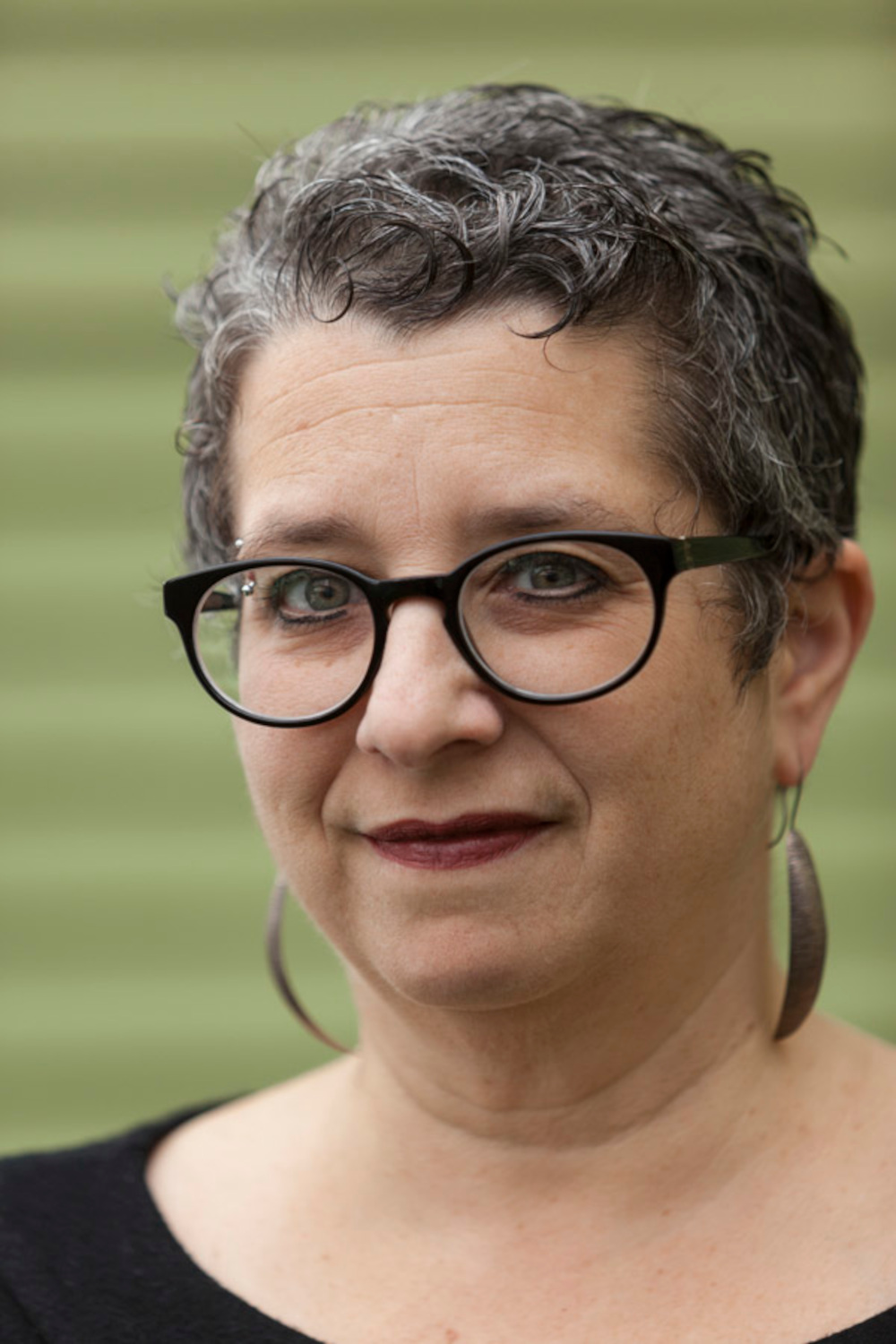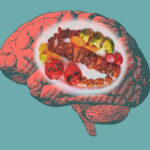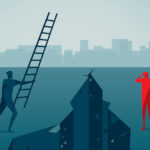The minute I saw the headline — “Should Patients Be Allowed to Die From Anorexia?” — in The New York Times Magazine last month, my heart sank. Over the last two years, more and more psychiatrists have floated the idea that it’s OK to stop trying to cure some people with anorexia nervosa.
People with anorexia develop a deep fear of food and eating, often losing so much weight that they die of starvation or complications. About 20 percent die by suicide. Anorexia is a terrible disease, one that inflicts maximum pain on the person diagnosed and their families and friends. The suffering is continuous and intense, and it gets even worse during recovery.

Harriet Brown is a professor of magazine, news and digital journalism who has written about her family’s experience with anorexia in the 2011 book “Brave Girl Eating.”
Visual: © Jamie Young
Our family experienced this for eight years. Having to watch my daughter suffer made me realize that anorexia is not a choice or a question of vanity but a tsunami of fear and anxiety that makes one of the most basic human acts, the act of eating, as terrifying as jumping out of a plane without a parachute. It usually takes years of steady, consistent, calorie-dense eating to fully heal the body and brain of a person with anorexia. Without the right kind of support and treatment, it’s nearly impossible.
So when psychiatrists suggest that maybe some people can’t recover and should be allowed to stop trying, they’re sidestepping their own responsibility. What they should be saying instead is that current views on and treatments of anorexia are abysmal, and medicine needs to do better.
If you’ve never experienced anorexia firsthand, consider yourself blessed. Anorexia has one of the highest mortality rates of any psychiatric illness. People with anorexia are 18 times as likely to die from suicide as their peers. Fewer than half of those with anorexia make a full recovery.
This reflects both the tenaciousness of the disease and the failure of medical professionals to treat it. Anorexia treatments were miserably ineffective 19 years ago when my daughter got sick, and many are still miserably ineffective. The field as a whole has focused on the antiquated notion that anorexia is primarily psychological rather than biological, and as a result, treatments have relied on insight-oriented talk therapy.
When psychiatrists suggest that maybe some people can’t recover and should be allowed to stop trying, they’re sidestepping their own responsibility.
The reality is that anorexia includes both psychological and biological components. But when someone is starving, insight cannot cure them. The only thing that helps is food — regular, consistent doses of calories. One of the crushing ironies of anorexia recovery is that you’ve got to do the thing you’re most terrified of, over and over. You’ve got to gain weight — not just enough to keep you from dying but enough for your brain to recover. Some of the worst moments in our daughter’s recovery came at the end, when she had gained enough weight to be physically safe but was nowhere near mentally recovered.
Most people with anorexia are incapable of insight about their disease, a phenomenon known as anosognosia. When my daughter was ill, she was reasonable, logical, and thoughtful — except when it came to food and eating. She could successfully solve a complex math problem and then, in the same breath, explain to me that she simply didn’t need to eat food the way other people do. She sounded so normal, in fact, that there were moments when I wondered if she was right.
The movement to recognize terminal anorexia, and to offer palliative care for it, is gaining traction. Last September, the American Medical Association published an article in its Journal of Ethics titled “A Life-Affirming Palliative Care Model for Severe and Enduring Anorexia Nervosa.” This concept is misguided and dangerous. It suggests there are people who fail to respond to treatment rather than acknowledge that the field has failed to help them. It suggests that there comes a time when it’s too late to recover, and that’s simply not true. I know a number of people who were sick for decades and who did eventually recover. Most deadly of all, it more or less equates severe anorexia with a wish to die, and suggests that that wish should be validated.
Most people with anorexia are incapable of insight about their disease.
It took my daughter eight years to make her way back from the wastelands of anorexia, and a crucial part of her recovery was believing she could get better. She told me once, “Mom, other people can recover. But I can’t.” One of my jobs as her mother was to remind her, fiercely and often, that she could and would recover. But what if your doctor and the medical world is telling you that maybe you can’t?
Terminal anorexia is a self-fulfilling prophecy, a diagnosis that dooms rather than describes. Rather than being seen as a sign of progress in medical thinking, it should be seen for what it is: a preventable failure by professionals to understand and treat a tragic disease.
If you are struggling with an eating disorder, call or text the National Eating Disorders Association at 1-800-931-2237.
Harriet Brown’s book “Brave Girl Eating: A Family’s Struggle with Anorexia” is in its 9th printing and has been translated into a dozen languages. She is a professor of magazine, news and digital journalism at the S.I. Newhouse School of Professional Communications in Syracuse, New York.











Comments are automatically closed one year after article publication. Archived comments are below.
Being in the thick of my daughter’s diagnosis, I look to you and your daughter as inspiration to mine, a complete parallel of what we are experiencing. Thank you for giving me insight, direction and hope.
Thank you for publishing your perspective/position. It is accurate. I only wish that our story had a happy outcome.
I’m very sorry it didn’t. It’s a truly terrible disease.
I love this perspective. Anorexia is a constant battle and patients shouldn’t be given up on by the medical establishment simply because they don’t all respond to treatment the same.
In fact, anorexia can be a terminal illness. Treatment is nowhere near good enough yet the paper in the Medical Ethics Jrnal comes close to describing what everyone diagnosed with anorexia nervosa should receive as standard treatment for as long as it takes. Calories are not the comprehensive answer for those with co-existing disorders such as egsubstance use, emotional dysregulation, and severe depression. I will continue to speak up about this on behalf of people diagnosed with AN who have been fighting this for decades.